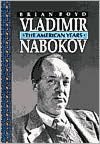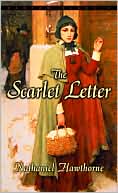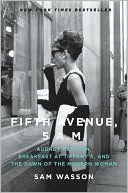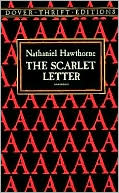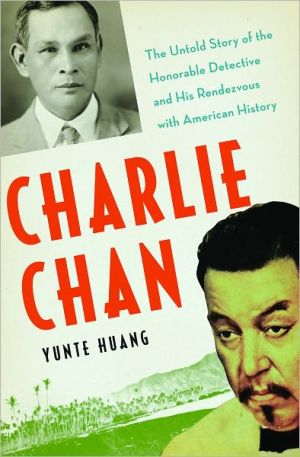Vladimir Nabokov: The American Years
The story of Nabokov's life continues with his arrival in the United States in 1940. He found that supporting himself and his family was not easy—until the astonishing success of Lolita catapulted him to world fame and financial security.\ \ \ The story of Nabokov's life continues with his arrival in the United States in 1940. He found that supporting himself and his family was not easy--until the astonishing success of Lolita catapulted him to world fame and financial...
Search in google:
The story of Nabokov's life continues with his arrival in the United States in 1940. He found that supporting himself and his family was not easy--until the astonishing success of Lolita catapulted him to world fame and financial security.Publishers WeeklyNabokov (1899-1977) fled France with his family in 1940, just before German tanks rolled into Paris. In the U.S. he settled into a peripatetic life of permanent impermanence, and much of the first half of this volume is crammed with minutiae on his teaching, writing and lecturing. But Boyd illuminates the contours of Nabokov's mind with sensuous precision, piercing the public persona of a very private man. The Russian emigre watched in bemusement as Lolita --which brought him fame, fortune and creative freedom--underwent a ``process of vulgarization'' in the public imagination. Boyd, senior lecturer at the University of Auckland, offers fresh readings of Pale Fire , Speak Memory , Pnin , Ada , Lolita and the rest of Nabokov's oeuvre. He conveys a keen sense of Nabokov as an artist who embraced life as an inexhaustible surprise and who suspected death to be a release from the self's prison. Ultimately a triumphant and definitive biography, this volume completes the story begun with The Russian Years. Photos. First serial to New York Times Book Review; author tour. (Sept.)
\ The New York Times Book ReviewNabokov has found at last a biographer worthy of him.\ — Walter Kendrick\ \ \ \ \ The Atlantic[Boyd is] an inspired explicator. . . . In Vladimir Nabokov: The American Years [Nabokov's] life and his art intertwine. They work against each other almost as often as they work with each other, and it takes a biographer as skilled as Brian Boyd to keep track of every fascinating twist and turn.\ — Anne Tyler\ \ \ The Los Angeles Times Book ReviewA munificently detailed biography. . . . [Boyd has] put all readers of Nabokov in his debt.\ — David Lodge\ \ \ \ \ The New York Times Book ReviewNabokov has found at last a biographer worthy of him.\ \ \ \ \ The Atlantic[Boyd is] an inspired explicator. . . . In Vladimir Nabokov: The American Years [Nabokov's] life and his art intertwine. They work against each other almost as often as they work with each other, and it takes a biographer as skilled as Brian Boyd to keep track of every fascinating twist and turn.\ \ \ \ \ The Los Angeles Times Book ReviewA munificently detailed biography. . . . [Boyd has] put all readers of Nabokov in his debt.\ \ \ \ \ The Atlantic[Boyd is] an inspired explicator. . . . In Vladimir Nabokov: The American Years [Nabokov's] life and his art intertwine. They work against each other almost as often as they work with each other, and it takes a biographer as skilled as Brian Boyd to keep track of every fascinating twist and turn.\ — Anne Tyler\ \ \ \ \ Publishers WeeklyNabokov 1899-1977 fled France with his family in 1940, just before German tanks rolled into Paris. In the U.S. he settled into a peripatetic life of permanent impermanence, and much of the first half of this volume is crammed with minutiae on his teaching, writing and lecturing. But Boyd illuminates the contours of Nabokov's mind with sensuous precision, piercing the public persona of a very private man. The Russian emigre watched in bemusement as Lolita --which brought him fame, fortune and creative freedom--underwent a ``process of vulgarization'' in the public imagination. Boyd, senior lecturer at the University of Auckland, offers fresh readings of Pale Fire , Speak Memory , Pnin , Ada , Lolita and the rest of Nabokov's oeuvre. He conveys a keen sense of Nabokov as an artist who embraced life as an inexhaustible surprise and who suspected death to be a release from the self's prison. Ultimately a triumphant and definitive biography, this volume completes the story begun with The Russian Years. Photos. First serial to New York Times Book Review; author tour. Sept.\ \ \ \ \ Library JournalBoyd concludes his study of the master novelist begun in Vladimir Nabokov: The Russian Years LJ 10/1/90. After the turmoil of the Russian Revolution and the rise of fascism, the latter half of Nabokov's life passes almost uneventfully. The major excitement comes with the publication of Lolita LJ 8/38, which brings Nabokov not only fame but also fortune enough to abandon teaching. Eventually the man seems to vanish into his works, which plays to Boyd's considerable gifts as critic. Lolita and Pale Fire LJ 5/15/62 receive sharp, illuminating criticism, although Boyd's defense of the virtually impenetrable Ada LJ 6/1/69 is more elegant than persuasive. A stimulating work, highly recommended for collections of modern literature. Previewed in Prepub Alert, LJ 5/15/91.--Grove Koger, Boise P.L., Id.\ \ \ \ \ Kirkus ReviewsMagnificent last volume of Boyd's critical biography of Vladimir Nabokov (Vladimir Nabokov: The Russian Years, 1990). What comes through here even more strongly than in volume one is not only a new Nabokov, a masterly teacher-scholar-poet- critic-translator-scientist, but also a human being and novelist not to be confused with his own heroes such as Humbert Humbert or Van Veen any more than Shakespeare should be seen as Lear, Hamlet, or Macbeth. Nabokov, though, is widely seen as a supreme narcissist, even by sympathetic readers—but no longer. Boyd revises everything, all of our misreadings and received ideas, and especially those passed on by Andrew Field's apparently insensitive biographies and commentaries. Everywhere throughout this biography fearful literary folk find themselves in the presence of a self-assured man of simple warmth and friendliness, full of fun and understanding, kindness and courtesy, who appreciates "the intelligent and observant people who bring me fruit and wine, or come to repair radiators and radios." Boyd also takes on the Edmund Wilson/Nabokov feud over Nabokov's 13- year, four-volume work on Pushkin's Eugene Onegin—and Wilson fares badly. As Nabokov rises from destitution to world fame, his each work is taken apart here at great length, much as Nabokov would dissect butterfly genitalia, to get at its aesthetic bliss. A small woman, Vera Nabokov often comes through as seen through Vladimir's eye (he was besotted with his wife to his last breath) as she grapples with the herculean labors of typing up his longhand index cards and keeping up with his colossal business needs in a hydra-growth of languages and countries. After Lolita, contractsflood in and the author finds himself working on five books while composing a sixth in his head. What this biography will do for Nabokov can only be guessed. But for the reader it will awaken a great block of humanity. (Photographs—not seen.)\ \
